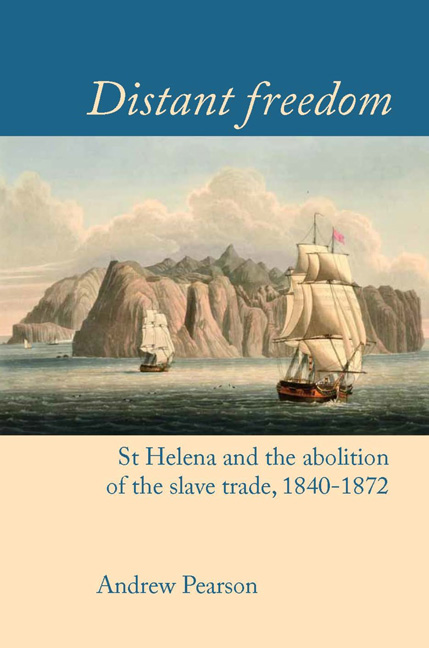Book contents
- Frontmatter
- Dedication
- Contents
- Figures
- Tables
- Acknowledgements
- Introduction
- Map
- 1 A Place of Immense Advantage
- 2 London and Jamestown
- 3 Sailortown
- 4 Life and Death in the Depots
- 5 ‘All, all, without avail’
- 6 After ‘Liberation’
- 7 Island Lives
- Conclusion
- Appendix 1 Liberated Africans Captured aboard Slave Ships: Cases Tried at Freetown, Luanda, Cape Town and St Helena, 1836–68
- Appendix 2 Prizes Adjudicated by the Vice-Admiralty Court of St Helena
- Appendix 3 Liberated African Emigration from St Helena
- Appendix 4 Emigrant Voyages from St Helena
- Bibliography
- Index
5 - ‘All, all, without avail’
Medicine and the Liberated Africans
- Frontmatter
- Dedication
- Contents
- Figures
- Tables
- Acknowledgements
- Introduction
- Map
- 1 A Place of Immense Advantage
- 2 London and Jamestown
- 3 Sailortown
- 4 Life and Death in the Depots
- 5 ‘All, all, without avail’
- 6 After ‘Liberation’
- 7 Island Lives
- Conclusion
- Appendix 1 Liberated Africans Captured aboard Slave Ships: Cases Tried at Freetown, Luanda, Cape Town and St Helena, 1836–68
- Appendix 2 Prizes Adjudicated by the Vice-Admiralty Court of St Helena
- Appendix 3 Liberated African Emigration from St Helena
- Appendix 4 Emigrant Voyages from St Helena
- Bibliography
- Index
Summary
A sickly slave ship was a horror beyond imagination, and the liberated africans who survived long enough to reach St Helena suffered from the same range of disease that afflicted the millions of other victims of the transatlantic crossing. The medical treatment of these people is central to the history of the island's Liberated African Establishment: for most recaptives, it was a core part of their experience at the depots; for the colonial authorities, it was a major preoccupation, always at the fore of the correspondence and at times dominating all other subjects.
As shown in Chapter Two, arguments in favour of the island's use as a reception depot rested on grounds of humanity. However, if the purpose of the St Helena experiment was the saving of enslaved Africans from death in the plantations, then it was an apparent failure. In virtually every period when its depots were busy, mortality was extremely high, and the letters of the medical officers convey a strong element of despair: everything had been tried, but all without avail. Modern analyses of St Helena's Liberated African Establishment tend towards portraying the island as a death trap, a place so unsuited to receive freed slaves that its use should never have been contemplated. The reality was far different: it was a healthy place whose environment was much better suited to the rescue of recaptives than most alternatives available to the British. The failure of medical treatment, while undeniable, had different and more complex causes.
The disease environment and public health of St Helena
Eighteenth- and nineteenth-century medico-environmental theories, founded on the link between place and disease, generally held that humans were not suited to being ‘exotics’ in a foreign environment. It was also universally agreed that that the torrid zone, encompassing Africa and the East and West Indies, was deleterious to European constitutions in both physical and moral terms. Tropical regions were synonymous not only with disease as it would be understood in the modern sense, but also with lethargy, effeminacy and decay.
St Helena is far distant from Europe and lies firmly within the tropical zone. According to received wisdom, therefore, its environment should have been malevolent to settlers and visitors alike.
- Type
- Chapter
- Information
- Distant FreedomSt Helena and the Abolition of the Slave Trade, 1840–1872, pp. 154 - 200Publisher: Liverpool University PressPrint publication year: 2016



